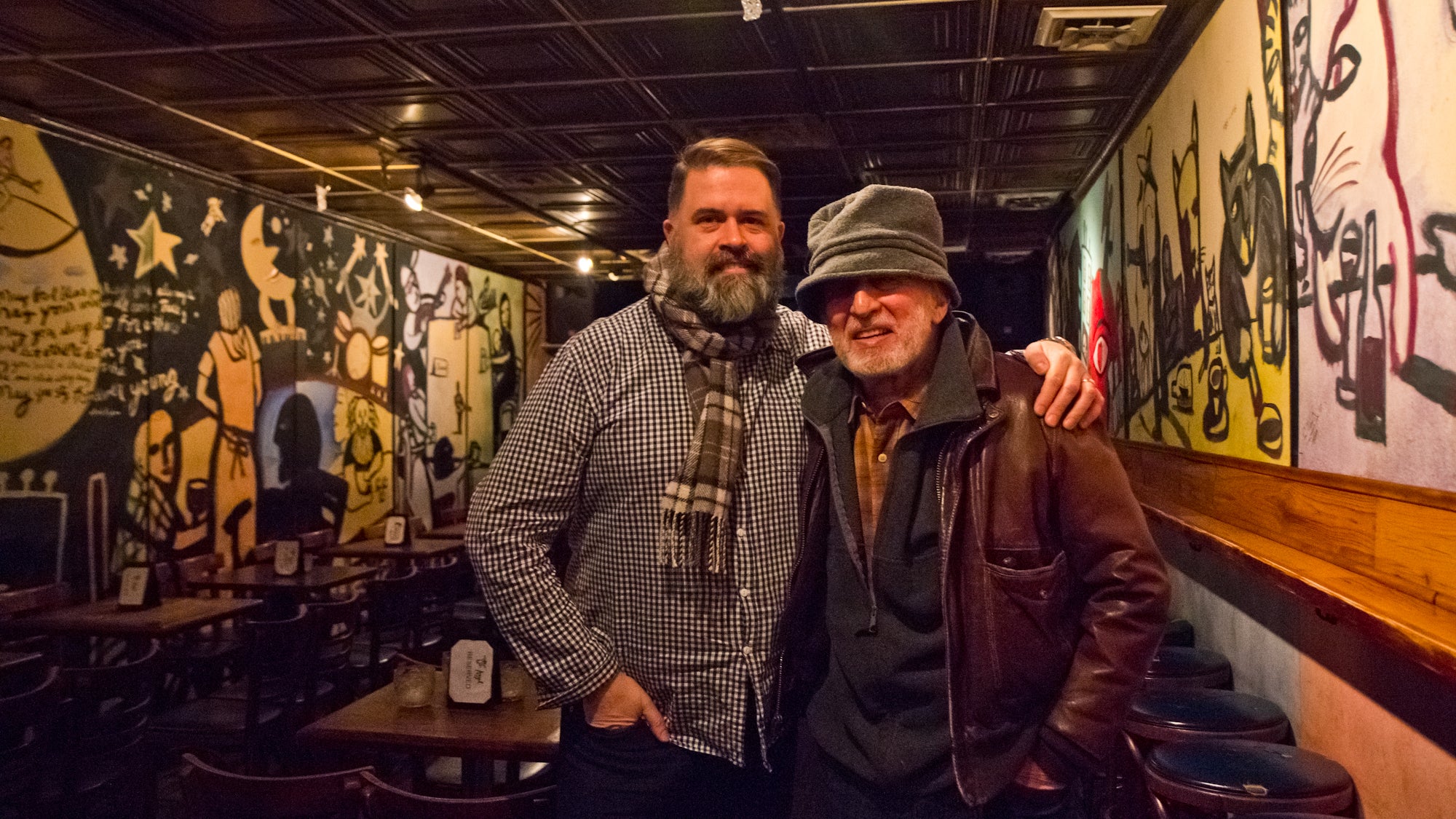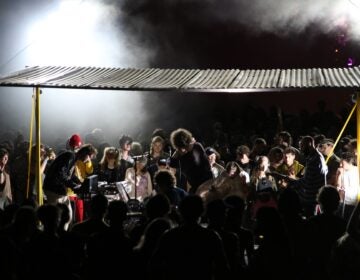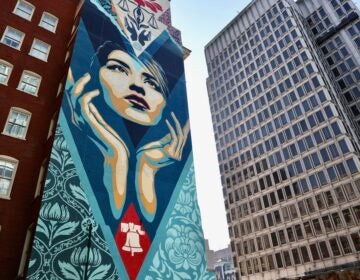Old City loses Tin Angel, final shows this weekend
Listen
Tin Angel owner Donal McCoy and booker Larry Goldfarb say the venue will move to a new
The Tin Angel, a Philadelphia musical institution for a quarter-century, will close this weekend after two final shows on Saturday night.
It will close with the same act that opened the Tin Angel in 1991: Ben Vaughn, who will fly out from Los Angeles to bookend the legendary club on 2nd Street.
“It’s pretty rare thing when you get to a chance to be in a room that intimate, where the nuances are audible,” said Vaughn, a Philadelphia native who now splits his time between a Santa Monica apartment and a house in the Mojave Desert. “Everything is audible and noticeable. Even your mistakes.”
The Tin Angel is a “listening room.” At 100 feet long and 15 feet wide, it’s shaped a bit like a shotgun. It cozily seats 115 people, and has some of the best acoustics in the city.
“Acoustically, the room is pristine. It’s always been that way. It’s one of our hallmarks,” said owner Donal McCoy in his Belfast brogue. “When the audience leaves, they feel they have had some sort of intimate connection with the artist. It’s like seeing an artist in your living room.”
McCoy, who also owns the restaurant downstairs, Serrano, wants to expand the Tin Angel. He says the club will re-appear – with the same name – in another part of town with a larger room that will accommodate about 500 people. He has not yet revealed where the new Tin Angel will be, but he hopes to open it by the end of the year.
The Tin Angel is known for nurturing emerging artists, and attracting major artists who have gone solo acoustic: Evan Dando (The Lemonheads), Glenn Tilbrook (Squeeze), Colin Hay (Men at Work), Citizen Cope, and Rock and Roll Hall of Famer Laura Nyro.
Amos Lee played his first paid gig at the Tin Angel. The singer-songwriter now plays the Academy of Music in Philadelphia, and has sold out Red Rocks in Denver and the Hollywood Bowl. Back in the early 2000s, he was bartending at the Tin Angel four nights a week, begging the booker to let him open for headlining acts.
“The fans who go to the Tin Angel were there to really focus on the music,” said Lee. “As a singer-songwriter, you always want a captive audience. To have a room that supplies that to you before you even go is a really special thing.”
Part of the legendary sound was due in part to George Pierson, the soundman at the Tin Angel for 16 years. He died in November.
“George made it easy on you if you were an artist,” said Amos. “I was a new guy. I think he dealt with that a lot. He was so kind and so patient. He was one of those guys who was big-hearted. His thing was just, ‘Don’t suck.’”
People who worked at the Tin Angel tended to be long-term – an anomaly in a business where staff turn-over can be counted in months. There have only been two soundmen there in 24 years. There have been just three managers.
There has been only one guy booking the place the whole time, Larry Goldfarb. Artists whose careers rise and fall – and rise again and fall again – knew they could go to Goldfarb in good times and bad.
After the break-up of Men At Work – the Austrialian band that sold tens of millions of records – singer Colin Hay launched a solo career. He basically started from scratch: Hay’s first gig at the Tin Angel was half empty. As his solo career grew, he graduated to bigger venues, eventually commanding halls 10 times the size of the Tin Angel.
“I got a call one day,” remembered Goldfarb. “They said, ‘Do you have a Wednesday night available?’ I said, ‘Yeah, why?’ ‘Colin would like to come back and do a date for you. You were there for him when he started.’”
“When they have taken off – when they are bigger than the room – more people than you think come back to play the room,” said McCoy. “That’s in part in testament to the room itself, but also in testament to Larry.”
McCoy looked sideways at Goldfarb: “There, I paid you a compliment.”
“I’ll pay you later,” Goldfarb retorted.
The current location on 2nd Street in Old City is not what it used to be. Theme restaurants and big bars with dance music replaced the smaller clubs with live music. Musician camaraderie is not there anymore.
Guitarist Mike “SloMo” Brenner has been playing the Tin Angel since it opened with his old band the Low Road, and more recently with Marah.
“We had many nights when we would be loading out of the Tin Angel at the end of the night, and we’d look down the street and see friends from another band loading out at the Khyber,” recalled Brenner.
“Friends from another band loading out at Upstairs at Nick’s, and around the corner other friends loading out of the Middle East,” he said. “It was a great community moment, with Philly musicians and out-of-town musicians all dragging their equipment out of clubs along 2nd Street.”
That doesn’t happen anymore on 2nd Street, but the owners of the Tin Angel hope to recreate that kind of community in their new location, wherever it winds up.
WHYY is your source for fact-based, in-depth journalism and information. As a nonprofit organization, we rely on financial support from readers like you. Please give today.





